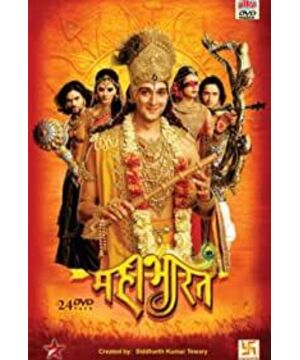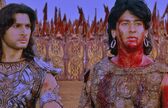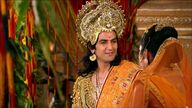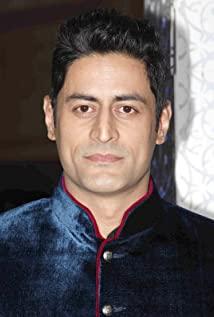The opportunity to start watching this drama was the fun activity session of the group meeting a few months ago, and everyone recommended their favorite books. An Indian colleague recommended the Mahabharata and said that it is a story and word of God, and reading it will make life happy. Out of curiosity, I first read the popular book rewritten by Raja Gopala Charlie to get a rough idea of the story, and then looked for the show to watch.
It took about a month to watch this 267-episode TV series. It's not easy to make a vast and complicated epic into a series, which is good-looking and entertaining. And in some places, the screenwriter's adaptation and choice of the original text can be clearly seen, including adding a voice for women's rights, so as to make the plot more acceptable to modern audiences and resonate.
Before the Black Princess was born in the sacrificial fire, King Muzhu's prayer to her fate was the first passage that made me cry. Later, at the wedding of the Black Princess, the female voice eloquently seemed to sing her inner voice, "My heart cannot be changed, I swear I will do it when I make it clear." In the end, she almost broke down in tears. It was the beginning of her life of perseverance despite all the hardships. . Almost every woman in this epic drama is impressive, from Zhenxin, Amba to Derobotti, whether they are respected and loved, humiliated and trampled, whether they are gentle or strong, Whether they bring blessings or live for revenge, their stories are moving, and their tenacity and wisdom are memorable. But what pushed them into this predicament was the responsibilities that women had to perform according to legal stereotypes. In fact, they have no freedom, they must have husbands, and they can only fight beasts. Therefore, the series called out the voice of respect and protection for women's rights through the mouths of Krishna and Drobodi.
Another moving passage is the fierce battle to death. The hero embraces mortal fate, reminiscent of the Iliad. The epics of ancient civilizations express a common imagination and praise on the subject of death. Noble heroes will face death with their heads held high, and their courage will not dissipate until the last moment. Its name and glory are immortal because it is sung for eternity.
Karna's death seems to me to be the real final climax. Revenge is so heavy and painful, even if she fulfills her vow to wash her long hair with unstoppable blood, she will not feel happy. People really shouldn’t rely on selfish interests and personal hatreds. If people with powerful talents can transcend their own suffering and become the reliance of other suffering people, benefiting the wider group, they will also benefit in the end. After struggling all his life, Karna finally woke up in the teachings of Krishna's little class and accepted death peacefully. At the end of his life, Karna, surrounded by his mother, lover and brothers, finally dispelled the shadows and ushered in a truly bright moment in his life.
So far, I can only say that I understand a little about this epic. Of course, there are cultural differences and time constraints, but there are also many things that human beings have in common - do the right thing, and be a person with a clear conscience.
Finally, praise the three without subtitles group!
View more about Mahabharat reviews











